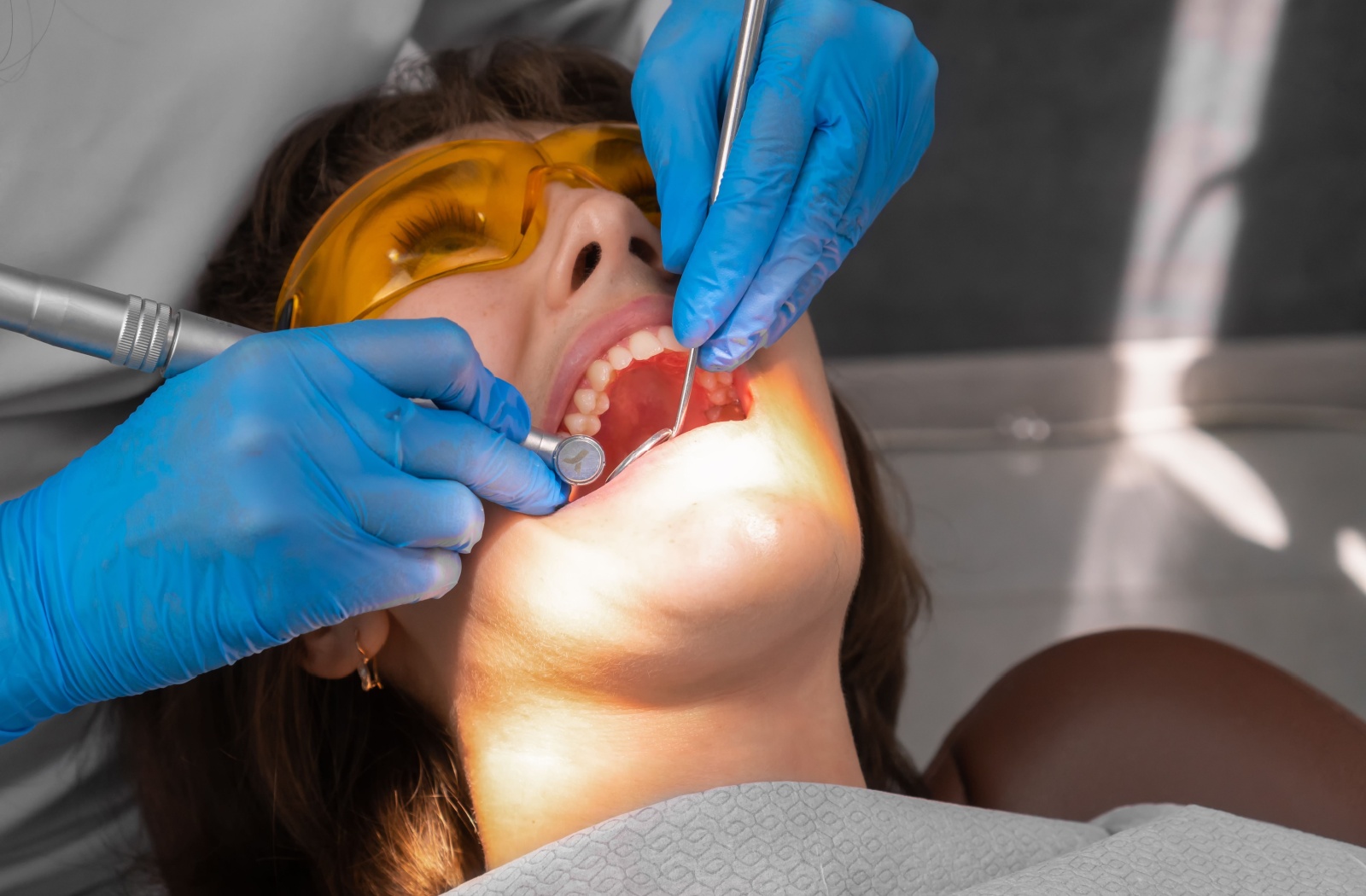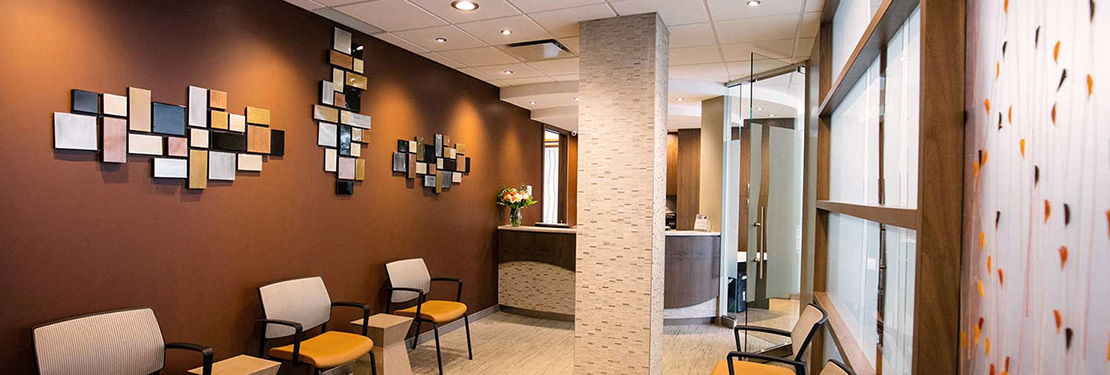Keeping your teeth feeling smooth and clean is a daily goal for many of us. However, over time, plaque tends to build up, making you more prone to cavities.
The most effective way to prevent plaque is through a combination of consistent daily care, mindful diet choices, and regular professional cleanings. This approach helps protect your teeth and gums from the effects of plaque buildup. It gives you the tools you need to maintain your oral health between dental visits.
What Is Plaque & Why It Matters
Plaque is a sticky, colourless film of bacteria that is constantly forming on your teeth. When you eat foods with sugars or starches, the bacteria in plaque produce acids. These acids can attack tooth enamel and may lead to cavities over time.
If you don’t remove plaque regularly, it can harden into a substance called tartar. Tartar builds up along your gum line and can make it more difficult to clean your teeth effectively. This is why addressing plaque before it hardens is such a key part of your oral health, as only a professional dental cleaning can remove tartar.
Your Daily Routine for Plaque Prevention
Brush Your Teeth Correctly
Consistent brushing habits are your first line of defence against plaque. Brush your teeth with a soft-bristled toothbrush and fluoride toothpaste for two minutes, twice a day. Make sure to help get to every surface of your teeth, not just the ones you see when you smile.
Pay special attention to the gum line, your back teeth, and areas around any fillings or crowns. Angling your brush slightly toward your gums can help clean the area where your teeth and gums meet.
Floss Every Day
Flossing removes plaque and food particles from between your teeth and under the gum line. These are important places that your toothbrush simply can’t reach. Flossing before you brush can be more effective at removing interdental plaque, and gently curving the floss around each tooth can help you clean more thoroughly.
Daily flossing is a powerful habit for maintaining healthy gums.
Rinse with a Mouthwash
An antimicrobial mouth rinse can be a helpful addition to your routine, as it can help reduce bacteria in your mouth and fight plaque in places you may have missed. It reaches your entire mouth—not just your teeth.
Think of it as an extra step after you brush and floss to support your oral hygiene. Rinsing can leave your mouth feeling fresh and clean. It complements the mechanical cleaning you get from your brush and floss.
How Your Diet Affects Plaque Formation
Foods & Drinks to Limit
The bacteria in your mouth thrive on sugary and starchy foods. When they feed on these substances, they create the acids that can lead to enamel erosion and plaque. It helps to limit your intake of foods that contribute to this process.
Foods and drinks that can increase plaque production include:
- Sugary drinks like soda & juice
- Sticky candies & sweets
- Starchy foods like chips & soft bread
Foods That Support Oral Health
Some foods can help your oral health by strengthening teeth and cleaning your mouth. Drinking plenty of water is one of the easiest things you can do, as water helps rinse away food particles and bacteria. It also helps combat a dry mouth, which can contribute to plaque buildup.
Crunchy fruits and vegetables like apples and carrots can help clean your teeth as you chew. Dairy products like cheese and plain yogurt contain calcium and phosphates. These can help put minerals back in your teeth that may have been lost from acids.

The Importance of Regular Professional Cleanings
Regular cleanings are a key part of keeping your teeth healthy. Even with excellent daily care at home, some plaque can be missed. Over time, this plaque hardens into tartar, which you can’t remove with a regular toothbrush and which requires a recall exam and cleaning to address.
Professional cleanings and at-home habits work together as a team. Your daily routine manages plaque, while your dental team removes the tartar that may have formed since your last visit. This partnership is what keeps your smile healthy in the long run.
What to Expect During a Cleaning
During a professional cleaning, a dental hygienist gently removes plaque and tartar from your teeth. This multi-step cleaning process is detailed and reaches spots you may find difficult to clean yourself. They focus on the surfaces of your teeth, between them, and along the gum line.
After the tartar is gone, your hygienist will polish your teeth to remove surface stains. This leaves your teeth feeling smooth and clean. Many people find this part of the visit very refreshing.
Why At-Home Care Is Only Part of the Solution
Professional cleanings are so important because they remove the tartar that has already formed. Your dental hygienist has the training and instruments to do this safely and effectively. This is a step you just can’t do on your own.
Think of it this way—your brushing and flossing are like daily maintenance for your smile. Regular appointments with your dentist in SW Calgary are like a deep clean and a tune-up. Both are needed for a complete oral health plan.
Work with Your Dentist for a Healthy Mouth
Signs You May Have Plaque Buildup
You can sometimes notice the signs of plaque or tartar buildup yourself. Being aware of these indicators can help you know when it might be time to pay extra attention to your routine.
Look out for these common indicators:
- A fuzzy feeling on your teeth that doesn’t go away after brushing
- Gums that look red, puffy, or feel tender, which can be a sign of developing gum disease
- Ongoing bad breath that doesn’t seem to improve
Your Partner in Plaque Prevention
Regular dental check-ups give your dental team a chance to spot any issues early. They can see things you can’t and can offer advice tailored to your needs.
As your dentist in SW Calgary, we can offer personalized advice on brushing techniques or product recommendations. Managing plaque is an ongoing process, but you have the power to make a big difference with your daily habits. At Ti Dental, we’re here to support you with professional care and guidance. Contact our friendly team today to request an appointment.








